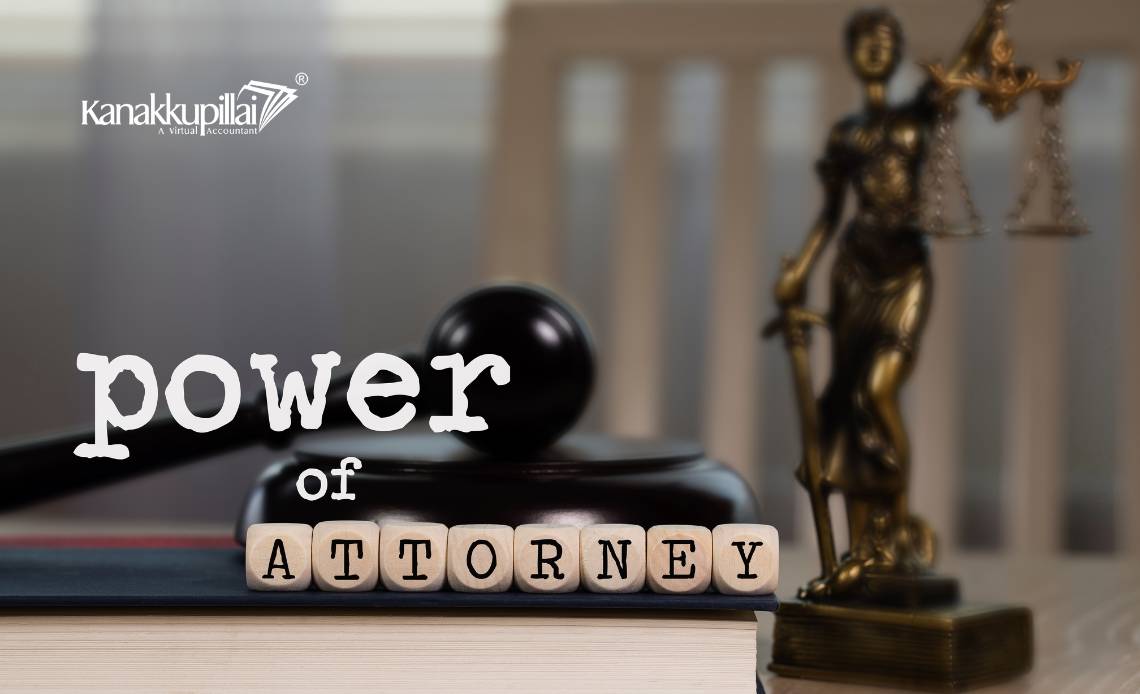Power of Attorney (PoA) is widely used document in India when an individual (principal) is capable of allowing the other (the agent or attorney) to carry out works on their behalf. From bank transactions to courtroom, a finely prepared PoA could help one to stay out of legal distress as well as conduct hassle-free processes.
This blog outlines the structure, types, legal history, and essential elements of drafting a valid Power of Attorney in India.
Introduction
The idea of Power of Attorney stems from convenience and trust. Where an individual is not in a position to look after their own legal or financial matters because they are absent, sick, or for any other reason, he or she may delegate the duty to another trustworthy individual. It has to be delegated in written form through the Power of Attorney document.
Although it is apparently a mere formality, the format and content of a PoA are legally significant. A poorly written PoA can result in controversy or even be rejected by banks, courts, or government offices. Hence, understanding the proper format and content is essential for anyone who wants to issue or accept one.
What is a Power of Attorney?
Power of Attorney is a legal document by which a person grants authority to another person to act on his behalf in matters of law, finance, or property. The person granting the authority is known as the ‘principal’ or ‘donor’, and the person receiving the authority is known as the ‘agent’ or ‘attorney’.
The extent of the authority may be wide or restricted, depending on the nature of the PoA to be created. It is regulated in India by the Powers of Attorney Act, 1882 and is accepted by courts and institutions throughout the nation.
Types of Power of Attorney in India
- General Power of Attorney (GPA)
This gives general powers to the attorney to act on behalf of the principal in different matters like dealing with property, bank transactions, signing documents, etc.
- Special Power of Attorney (SPA)
This is restricted to a particular act or transaction. For instance, giving authority to someone to sell a specific property or represent the principal in a court case.
- Durable Power of Attorney
Although not usually Indian practice parlance, a durable PoA continues to be effective even if the principal is subsequently mentally incapacitated.
- Medical Power of Attorney
This is utilized to delegate authority to another to make medical decisions in place of the principal in the event that he becomes incapable of doing so.
When is a Power of Attorney Used?
- A PoA comes in handy in the following real-life situations-
- NRI individuals authorizing someone in India to take care of property or banking.
- Business owners delegating operational authority in their absence.
- Older persons authorizing relatives to take care of legal or medical issues.
- Temporary authorizations for court appearances, financial transactions, or document signing.
Sample Format of Power of Attorney
POWER OF ATTORNEY
KNOW ALL MEN BY THESE PRESENTS that I, [Full Name of Principal], son/daughter of [Father’s/Mother’s Name], residing at [Full Address], do hereby appoint [Full Name of Attorney], son/daughter of [Father’s/Mother’s Name], residing at [Full Address], to be my true and lawful attorney for me and in my name and on my behalf to do and execute all or any of the acts, deeds, matters and things as hereinafter mentioned-
- To manage, maintain, and look after my immovable property situated at [Property Address], including collecting rent, executing lease agreements, handling maintenance and security, and paying property taxes.
- To sell, lease, mortgage, or otherwise deal with any of my movable or immovable property, and to execute necessary deeds, agreements, sale deeds, lease deeds, or any other legal documents required in connection thereto.
- To represent me before all government and municipal authorities, revenue departments, electricity and water boards, Registrar’s offices, and financial institutions.
- To open, operate, and close bank accounts in my name, issue and sign cheques, deposit or withdraw money, and obtain statements or loan approvals as required.
- To sign, submit, and receive documents, applications, and correspondence related to PAN, Aadhaar, passport, or any other identification and statutory requirements.
- To appear before courts of law, quasi-judicial bodies, tribunals, or any legal authority and to sign pleadings, affidavits, vakalatnamas, petitions, or other legal papers in connection with any legal proceedings involving me.
- To sign and execute agreements, contracts, and deeds on my behalf and to do all acts required for registration of such documents.
- To appoint any substitute or delegate to perform all or any of the above acts and to revoke or alter such appointment at any time.
This Power of Attorney is made voluntarily and shall remain in force until revoked in writing by me or until my demise.
IN WITNESS WHEREOF, I have executed this Power of Attorney on this [Day] of [Month], [Year] at [Place].
Signature of the Principal
(Name)
Witnesses:
- Name: [Witness 1 Full Name]
- Address: [Address of Witness 1]
- Signature: ___________________
- Name: [Witness 2 Full Name]
- Address: [Address of Witness 2]
- Signature: ___________________
Notarization/Registration Details (if applicable)
(Seal and Signature of Notary Public / Sub-Registrar)
Conclusion
A Power of Attorney is more than a paper, it’s a transfer of trust and legal authority. Whether you’re an NRI assigning property rights or a corporate executive delegating financial choices, a well-drafted PoA makes sure your business is done efficiently. You must clearly write the document, get it properly signed and attested, and register or notarize it wherever necessary. Consulting a legal expert is always a good idea, particularly for high-value or long-term authorizations.





